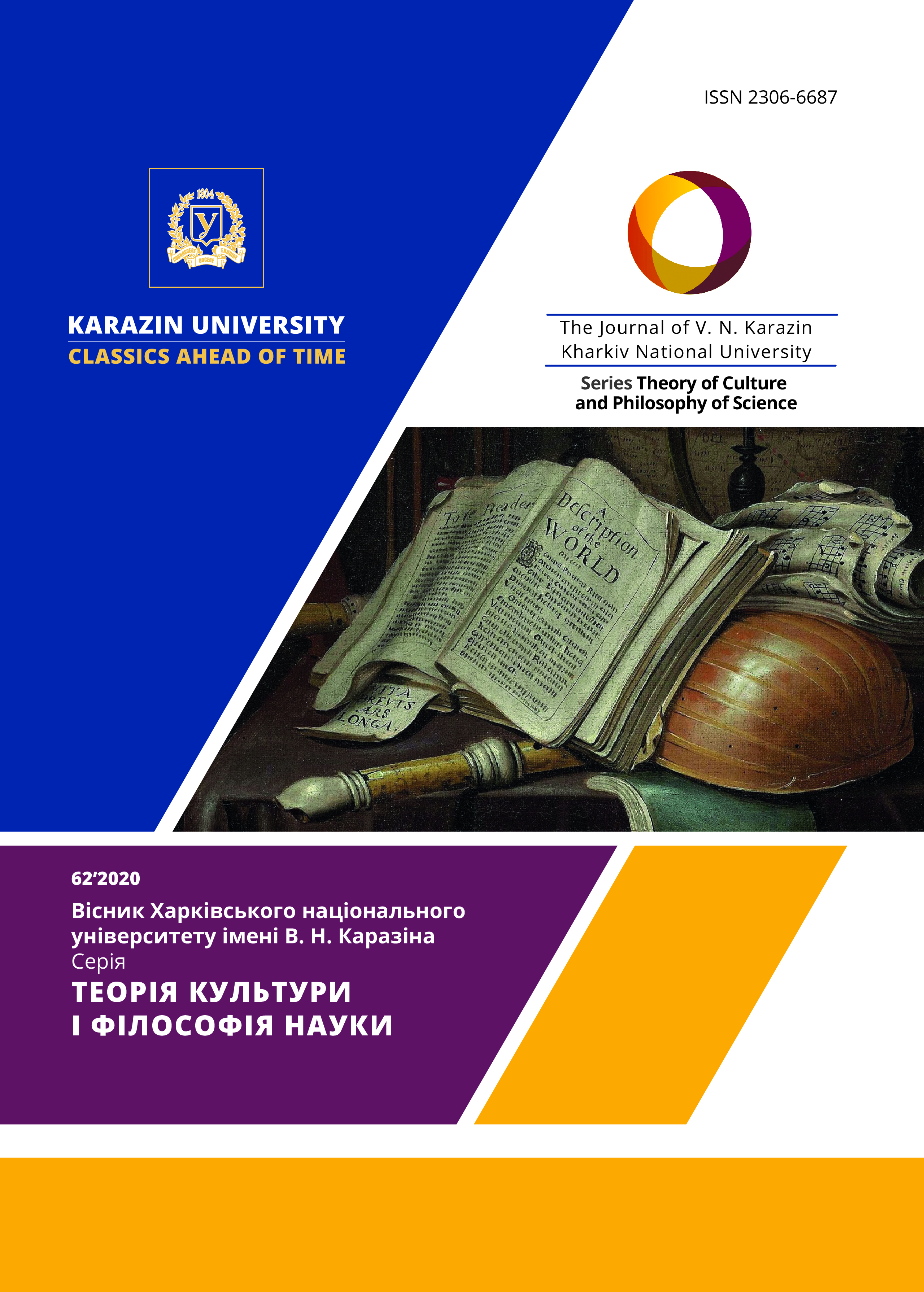THE ROLE OF TRANSDISCIPLINARY DIALOGUE IN MODERN INFORMATION SOCIETY
Abstract
To identify and characterize the role of transdisciplinary and multidisciplinary dialogue in modern information society. Theoretical basis of the study is presented by works on essence and development of post-classical information society. A separate block is represented by works on knowledge and science, which are changing in modern societies under the influence of informatization and globalization. Theoretical basis of the study is grounded on ideas about transdisciplinarity, transdisciplinary field of research as a field of dialogue between different sciences and paradigms. Scientific novelty. It is hypothesized that transdisciplinary dialogue is one of the basic principles of modern information society formation, in this double principle of dialogization is implemented - both plurization, dialogization of truth in science and philosophy is performed, and another process - science and transdisciplinary research contribute to the development of new information technologies, mediation and democratization of society, where information society acts as a main customer and consumer of transdisciplinary knowledge, adapting it to new needs of media culture and digitalization. The role of transdisciplinary and interdisciplinary dialogue in modern society is shown, as well as the understanding of this dialogue from the point of view of philosophy and the humanities. The need for democratization and harmonization of knowledge is proved, it is shown that with the spreading of interactive dialogue democratic institutions penetrate into information structures, thus providing an opportunity to talk about the plurality of truth and complementarity of different ways of cognition. It is revealed that transdisciplinarity is provided by special procedures of dialogue and scientific research, including reflection and transflection, fractality, «included» view, intersectoral expertise, including environmental parameters. Thanks to dialogue, knowledge is centered around man and civil society, a combination of anthropological, socio-philosophical, physical-mathematical and ecological-biological paradigms. It is stated that the development of transdisciplinary and scientific dialogue leads to overcoming the boundaries between humanitarian and natural approaches to reality, the universalization of science as a way of cognition.
Downloads
References
Белл Д. Грядущее постиндустриальное общество. Опыт социального прогнозирования. М.: Академия, 1999. 956 с.
Гіденс Е. Нестримний світ. Як глобалізація перетворює наше життя / пер. з анг. Н. Поліщук. Київ: Альтерпрес, 2004. 100 с.
Кастельс М. Галактика Интернет: Размышления об Интернете, бизнесе и обществе / пер. с англ. А. Матвеева под ред. В. Харитонова. Екатеринбург: У-Фактория, 2004. 328 с
Степин В.С. Саморазвивающиеся системы и философия синергетики.Что такое синергетика: Материалы междунар. конфер. «Путь в будущее – наука, глобальные проблемы, мечты и надежды», 26–28 ноября 2007 г., Ин-т прикладной математики им. М.В. Келдыша РАН, Москва. [Электронный ресурс] / В.С. Степин. М.: РАН, 2007. URL: http://spkurdumov.ru/what/samorazvivayushhiesya-sistemy
Уилбер К. Интегральное видение [Электронный ресурс]. URL: http://www.yotube.com/watch?v=5pUbWugmLXO
Хартия трансдисциплинарности [Электронный ресурс]. URL: http://nicol.club.fr/ciret/index.htm
Цехмістро І.З. Постмодернізм і реляційний холізм у філософії науки. Сучасність. 1998. № 9. С. 91-101.
Citations
THE TRANSDISCIPLINARY RESEARCH OF POLITICS, OR THE PHILOSOPHY AS THE EXPERIMENTAL ADVENTURE
Trachuk Mykyta (2025) The Journal of V. N. Karazin Kharkiv National University, Series "The Theory of Culture and Philosophy of Science"
Crossref




